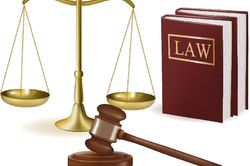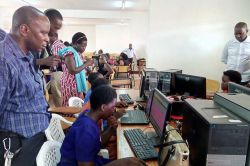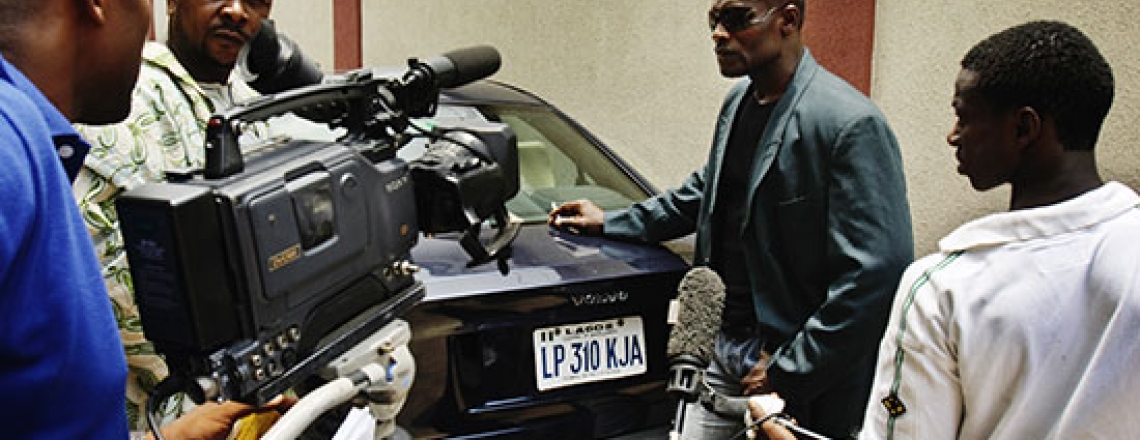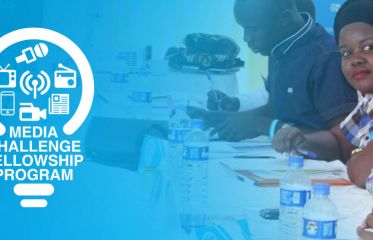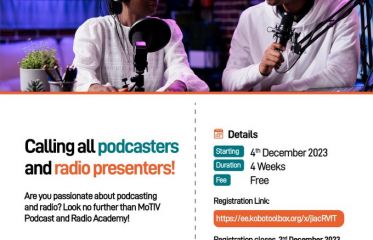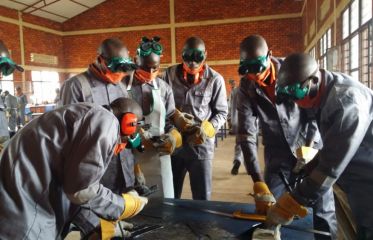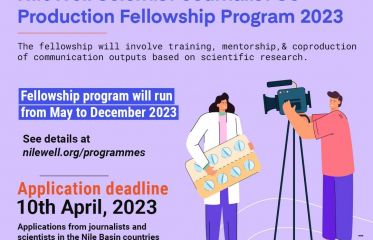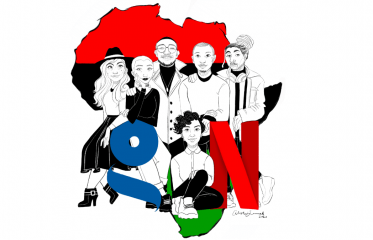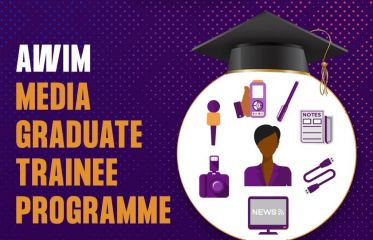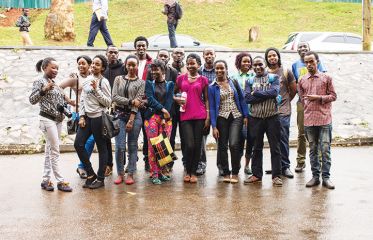Breaking News
- Flexible Remote Work Opportunity for University Students: Earn $100–$250 Per Month ...Read More
- Ministry of Education and Sports Azerbaijan Government Scholarships For 2025-2026 Academic Year ...Read More
- Government Sponsorship Undergraduate Admission Lists 2025-26 for Makerere University ...Read More
- Ministry of Education And Sports: Egyptian Government Scholarships 2025-2026 Academic Year ...Read More
- Ground Breaker Full Scholarship for girls to study Software Engineering 2025 July Intake ...Read More
- Tony Elumelu Foundation Entrepreneurship Programme (TEEP) 2025 for young African Entrepreneurs ...Read More
- DESIGNING FUTURES 2050 International Design Competition 2025 (€15,000 prize) ...Read More
- Ground Breaker Full time Scholarship for girls to study Software Engineering 2025 Intake ...Read More
- Ministry of Education And Sports Algerian Vocational Training Scholarships for 2024-2025 AY ...Read More
- Ministry of Education and Sports Advert for the Algerian Government Scholarships for 2024-2025 ...Read More
Directors -Stage, Motion Pictures, Television, and Radio
Interpret script, conduct rehearsals, and direct activities of cast and technical crew for stage, motion pictures, television, or radio programs.
Add to FavouritesInterpret script, conduct rehearsals, and direct activities of cast and technical crew for stage, motion pictures, television, or radio programs.
Sample of reported job titles: Animation Producer, Associate Producer, Executive Producer, News Producer, Newscast Producer, Producer, Promotions Producer, Radio Producer, Television News Producer, Television Producer (TV Producer)
Tasks
1. Write and edit news stories from information collected by reporters and other sources.
2. Coordinate the activities of writers, directors, managers, and other personnel throughout the production process.
3. Research production topics using the internet, video archives, and other informational sources.
4. Review film, recordings, or rehearsals to ensure conformance to production and broadcast standards.
5. Monitor postproduction processes to ensure accurate completion of details
6. Conduct meetings with staff to discuss production progress and to ensure production objectives are attained.
7. Perform administrative duties, such as preparing operational reports, distributing rehearsal call sheets and script copies, and arranging for rehearsal quarters.
8. Resolve personnel problems that arise during the production process by acting as liaisons between dissenting parties when necessary.
9. Hire directors, principal cast members, and key production staff members.
10. Arrange financing for productions.
Key Knowledge Areas
Communications and Media — Knowledge of media production, communication, and dissemination techniques and methods. This includes alternative ways to inform and entertain via written, oral, and visual media.
English Language — Knowledge of the structure and content of the English language including the meaning and spelling of words, rules of composition, and grammar.
Telecommunications — Knowledge of transmission, broadcasting, switching, control, and operation of telecommunications systems.
Computers and Electronics — Knowledge of circuit boards, processors, chips, electronic equipment, and computer hardware and software, including applications and programming.
Production and Processing — Knowledge of raw materials, production processes, quality control, costs, and other techniques for maximizing the effective manufacture and distribution of goods.
Administration and Management — Knowledge of business and management principles involved in strategic planning, resource allocation, human resources modeling, leadership technique, production methods, and coordination of people and resources.
Customer and Personal Service — Knowledge of principles and processes for providing customer and personal services. This includes customer needs assessment, meeting quality standards for services, and evaluation of customer satisfaction.
Fine Arts — Knowledge of the theory and techniques required to compose, produce, and perform works of music, dance, visual arts, drama, and sculpture.
Engineering and Technology — Knowledge of the practical application of engineering science and technology. This includes applying principles, techniques, procedures, and equipment to the design and production of various goods and services.
Personnel and Human Resources — Knowledge of principles and procedures for personnel recruitment, selection, training, compensation and benefits, labor relations and negotiation, and personnel information systems.
Clerical — Knowledge of administrative and clerical procedures and systems such as word processing, managing files and records, stenography and transcription, designing forms, and other office procedures and terminology.
Psychology — Knowledge of human behavior and performance; individual differences in ability, personality, and interests; learning and motivation; psychological research methods; and the assessment and treatment of behavioral and affective disorders.
Crucial Skills
Active Listening — Giving full attention to what other people are saying, taking time to understand the points being made, asking questions as appropriate, and not interrupting at inappropriate times.
Speaking — Talking to others to convey information effectively.
Reading Comprehension — Understanding written sentences and paragraphs in work related documents.
Coordination — Adjusting actions in relation to others' actions.
Critical Thinking — Using logic and reasoning to identify the strengths and weaknesses of alternative solutions, conclusions or approaches to problems.
Time Management — Managing one's own time and the time of others.
Monitoring — Monitoring/Assessing performance of yourself, other individuals, or organizations to make improvements or take corrective action.
Judgment and Decision Making — Considering the relative costs and benefits of potential actions to choose the most appropriate one.
Active Learning — Understanding the implications of new information for both current and future problem-solving and decision-making.
Management of Personnel Resources — Motivating, developing, and directing people as they work, identifying the best people for the job.













